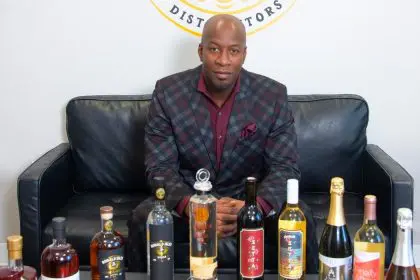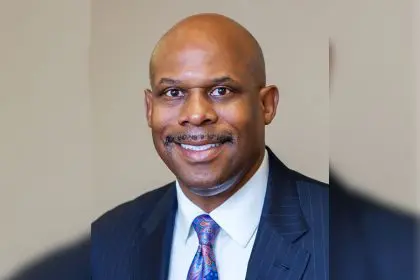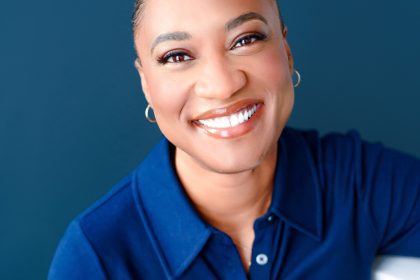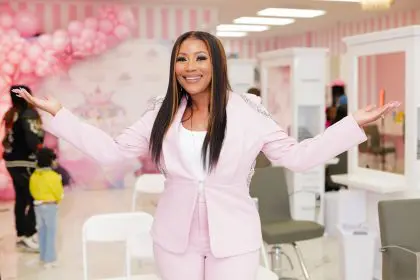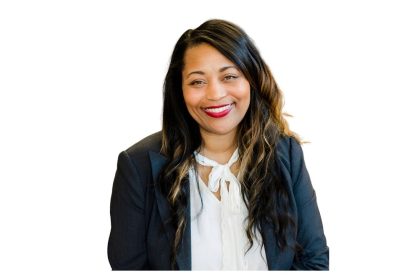Ray Mills, an accomplished Atlanta entrepreneur and education advocate, has built his empire on resilience. As the CEO of Ray Mills Enterprises and owner of The Mills Academy, Mills has weathered both multimillion-dollar successes and devastating losses, emerging stronger each time. Recently awarded his doctorate and harboring political ambitions, Mills brings a uniquely transparent perspective to business leadership. In this candid conversation with Rolling Out CEO Munson Steed, Mills shares hard-earned wisdom about knowing when to persist – and when to pivot.
[Editor’s note: This is a truncated transcribe of a longer video interview. Please see the video for the extended version. Some errors may occur.]
When did you first recognize your calling as a leader?
Well, the first thing I was 11 years old, I knew then of the leadership skills that I possessed and what I wanted to do in life. I knew that the gift inside of me was to lead. So, when you understand and can identify that gift, then you have to walk that path because now you’re accountable for what you know.
What key skills should young aspiring CEOs develop?
Well, I’m not that young no more, but we’re going to get through it. Patience, I think that one of the most important things on this path of life that I’ve had is learning patience. When you’re younger, you don’t understand that tomorrow is coming. You don’t understand that if you keep living, the future will be the present. And when we’re younger, we tend to not have that patience and want everything now. So, I would definitely tell my younger CEOs and up and coming CEOs to have patience, have understanding and enjoy the process. It’s not about the elevators, it’s about the stairs. You take the stairs because each step is going to teach you something.
What are three key steps that have taught you the most?
Faith in God, that’s key because it’s walked by faith and not by sight. On a spiritual level, I’m spiritual in every business adventure I’ve ever had because I understand that it’s not all about what I can see. It’s about what I believe in. So that’s number one is keep God first. Number two, give grace. Give you give yourself grace and understanding, even when you make mistakes, even when things aren’t going your way. Don’t be so hard on yourself. And number three, most importantly, make sure you are a selfless individual. I think running a company being a CEO, you have to understand that you eat last. It’s about those that that are working for you or running your company or helping move your company in the right direction. It’s about them first. It’s not about you. You eat last.
How would you describe your leadership style?
Mine is, I don’t I call it, I don’t want to be baby Hitler. Like I don’t like to have to hover over anybody that works in any of my companies. I want to give them enough leeway to be themselves, do their job and that, you know, full potential. But I want to help them identify their strong points and their weak points are not necessarily weak points, but points that they can work on. So, my leadership style is considered to be very contemporary and more relaxed than the normal, because I like to see people in a normal habitat. I don’t want you to put on a costume when you come to work for me. I want to know who you are. And the only way to know who you are is to give you enough leeway to be you.
What have you learned about leveraging technology in business?
Three things I learned about technology is it’s a blessing and a curse. It’s all about how it’s used. It can bless your business or it can curse your business. Number two is learn to identify what place technology is supposed to be in your company. Number three is how to leverage the technology to go to help to level up your company. And what I mean by that is, it’s so many different apps and so many different marketing tools to help push your company into another stratosphere that you have to learn how to use or hire somebody else to use it.
Within my company, I have a marketing area that we do Facebook ads, Google analytics, things of that nature. And then we also have an app. So, within that app, we also have that technology, of course. So, we use that to get the word out to the consumers and to our clients about the product in particular, whether it’s the media side of my company or is it having to be the school side of my company.
How do you manage multiple businesses and stay organized?
Well, I have help. I can’t do it by myself. I have an assistant. She sends me my calendar at five a.m. every day. And that’s customized to my liking because I’m a person that you literally have to be next to. And what I mean by that is like some people, you can give them a calendar for the week and they can follow it. I know my weaker points. That’s not my strong point. I’m the CEO that I need to be reminded throughout the day about certain meetings, certain deadlines, certain things that need to be done.
So, when I wake up in the morning, I look at my calendar and then I have my morning meeting with her. It lasts about 10 minutes about what’s on our agenda for the day and what need to be closed and accomplished and what deadlines we’re trying to make.
How are you reviewing last year and planning for 2025?
I go by the last, of course, three, I call it three seasons, but we call it in corporate America is called quarters. I call it seasons. But like this quarter, I have rearranged and transitioned my company as a whole, which is Ray Mills Enterprises. We’ve gotten rather 11 employees that didn’t really serve a purpose to be able to bring that spreadsheet up. We did take a nine percent loss this year. But we’re still in the green. So, me getting ready for 2025 looked like I needed to shed the fat on my companies and be able to replace that with muscle, be replaced that with something that can work into the future, not what’s going on now.
I’m going more of a technology wave for 2025. I’m more old school overall, but I understand what time we live in now. So, we’re going to utilize technology a lot more going into 2025.
What legacy do you want to leave as CEO of Ray Mills Enterprises?
Well, the past year, that notion has changed. I’m working more so on my obituary than my portfolio now. And what I mean by that is before I just wanted to mass things, land and financial gain. That was my driving point. Now my driving point is what can I do to help others? What can I do to plant good seeds more into this atmosphere that we live in today? So, I want people to look at me as “he helped me. He gave us knowledge. He gave us understanding. He gave us wisdom. He did the best he could with teaching us, reaching back and helping teach us. So, we don’t have to hit those walls. We don’t have to have those learning curves”.
I would definitely want people to look at me as a learning tool, not a business mogul, not like he has a high network. That’s not my driving force at 39. My driving force now is how can I help others? I want them to look at me and say “he helped me”.
Who comprises your mastermind group and why is having one important?
It’s very important. I tell people you’re only as good as the person standing next to you. It’s you’re only as good as the sockets you’re plugged into. So, if you plugged into a 20-watt socket, you’re going to get 20 watts. I like to be plugged into a 100-watt socket because I need all the juice. So, the individuals around me, some of them I can name and some of them I can’t name for political reasons, but they are individuals that I handpick. I don’t have a lot of friends. I’m not that friendly guy. You have to serve a purpose to be in my ecosystem. And I have to serve a purpose to you also. It’s reciprocity. We have to be able to pour into each other.
I have my trainer, which is Jason Lobdell. He’s not only my trainer, he’s a confidant and he’s also a business partner. I have Mike Willis. He’s a he’s an older entrepreneur that I met 18 years ago that kind of have seen the different transitions of my life. And he gives me wisdom and understanding from somebody that’s older, who’s lived life. I truly believe that in order to really advance, you got to have individuals that are advanced. Some things you can’t be taught, you just have to live through them.
I’ve always surrounded myself with older individuals that has lived life because they can get in those gyms, they can pass those gyms down. I’m not a guy who ever surrounded himself with individuals that was his age or younger. Not that I can’t learn anything from them, but I’m not trying to look back on what I meant. I’m trying to see where I’m going and what possibly could be ahead. So, my circle is five individuals. I did name two to other three are political individuals. So, I am in politics. So, we in this political season, we got to kind of be mindful of name dropping. But they are very important individuals that I speak to on a day-to-day basis to help me make those decisions.
How do you process and trust challenging feedback from your mastermind group?
Well, they laugh at me because they can give me the insight, but my personality, I’m gonna have to add something to it. Like you can say, hey, right, walk just this way right here, and you’ll get to the end of the rainbow with a million dollars. For some reason, when I process it, I’m going to walk like this, but I’m going to have to walk like this. But we don’t get to the end of the rainbow. It’s just how I process it. It’s a gift and a curse. I tell anybody I said, I’ve been my worst enemy over the years, as far as if anything didn’t work. Because at times I’ve got in my own way.
When they give me information, I do download it. And then sometimes I keep what I need. And sometimes I throw away stuff that I knew I needed. It just didn’t fit me. You get what I’m saying. I surround myself by conservative individual and I’m very liberal. I have an out born personality. The individuals that’s my confidence, they talk low. They’re really smooth. They’re very smart. They’re not flamboyant personalities. So, they’ll say something that I just like, no, I can’t do it that way. I’ll do it. I just can’t do it that way.
What advice would you give to future CEOs in a commencement speech?
I would challenge them to learn them first. Stop trying to necessarily look at somebody else’s blueprint and follow it. Because I let them know on a spiritual level, as I did in a commencement speech, that God blesses us all with different gifts. It’s very difficult to follow the next person’s blueprint. You follow me? It’s very hard to follow somebody else’s blueprint and expect the same results. So, I say, learn your blueprint. Learn your blueprint first. And in the process of learning your blueprint, you’re going to learn you.
Number two, like I said, patience. Patience. And understand that just because it may not be working now doesn’t mean it won’t work. Number three is honestly, know when to hold it, know when to fold it. A lot of entrepreneurs, I noticed that their companies become their babies. And even if it’s killing them, they can’t let it go. So, they go down with their company. Instead of understanding that it’s a company that’s not working. It’s not your child. It’s not your baby. It is what it is. It’s a company. It is a business.
How can CEOs learn from failure while not taking it personally?
You have to be open to grow. You can’t take it so personal. You can’t take it to heart and get down on yourself, beat yourself up. It’s a lesson in everything good, bad, or ugly. And within the lesson of my companies that didn’t necessarily do well, I learned again, when to hold it, when to fold it, I learned, okay, well, you over leverage yourself right here. You, was too egotistical right here. You hired the wrong people right here. You didn’t work hard enough right here. I learned these things.
And I took those things with me into the future of today to know not to repeat them. I wasn’t that hard on myself. I understood that I did it. It starts with the head. I tell people, if you’re going to be a boss, you got to step up in those ball shoes. You can’t point the finger. You can’t just want the praise when your company’s doing good. You got to take that you got to take that beat up when the company’s doing bad. I had a media company for almost five years, a Milli TV and Milli TV. And it’s funny because I did an interview with you all a few years ago at Milli TV is a studio I have downtown shooting movies and shows. At the end of that business venture, which I just actually dissolved that business two and a half months ago, I was in a red 2.8 million per year.


